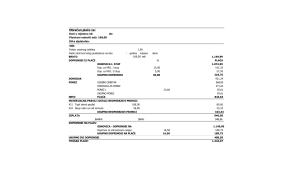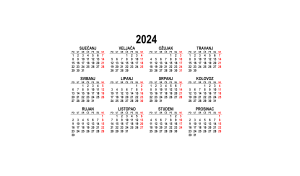The job interview is probably the most stressful part of any recruitment process. People are extremely concerned about what will happen at a job interview, what questions will they be asked, or what impression they will make on potential employers. Many people panic a little or a lot.
The best way to prevent a bad experience is to try to prepare as much as possible for the job interview. We bring you 10 tips on how to prepare for a job interview. You can also see the available vacancies on the website ŠtoRadiš.hr or click the button below to upload your CV to the site.
Your dream job might be just a click away!
1. Research the company for the job interview
Even if you have never heard before of the company whose vacancy you are applying for, you should never come to a job interview without knowing anything about the company.
Search the Internet and try to find out as much as possible about the company. When was it founded, what does it do, and what are its achievements? Thoroughly study the company’s “About Us” section. Only when it is clear to you how it is different from its competitors, you can conclude that you have prepared well.
Always come to the job interview knowing all the available details about the company so that you can impress your interviewers with your high motivation. In addition, it is very likely that you will be asked a question at the interview that is highly related to your knowledge of the company, which can vary from the simple: “What do you know about our company?” to “What do you expect from your workplace?”
2. Know the competition
The only thing better than knowing the company you’re applying for is knowing the industry in which it operates. Therefore, as mentioned earlier, try to get information about the competition, more precisely who the main players in the market are and where the company you are potentially joining stands. Thus, you will be able to impress your interviewer with your knowledge of how the company fits into the market. This is probably a demanding task so don’t hesitate to ask about the industry among your colleagues and friends. However, a very good impression in this area can ensure you get the job because you will show that you are also a serious player in the industry.
3. Get to know the organizational culture of the company for the job interview
Try to find out before the interview what the organizational culture of the company is like, i.e. whether you can expect a casual and more friendly or serious and more professional atmosphere at the interview. You ascertain this by reading official company blogs as well as studying company posts on social networks. Today more and more companies try to hire not only based on who is the best person for a certain field but also on who will fit the best into the existing team. Get all your social skills ready.
In addition, try to remember the positive news and examples that you read on the company’s website so that you can use them in the conversation if the opportunity arises. The key is that your potential employer recognizes you as a person who will easily fit into the existing team.
4. Study the position you are applying for
When searching for a job, most people only read the job title and location and ignore the specific job description. At the end of the day, an accountant does the same job independently of the employer. We advise you to study the items in the description, not because you don’t know what the job entails, but so that you can support them with your own examples from experience.
This sounds seemingly simple, but a significant number of job seekers neglect this preparation, counting on their resume being sufficient. You are given only one opportunity to present your qualifications to the employer, do not sideline it. When the employer asks you to introduce yourself, do so by going through each job requirement and supporting it with examples from your existing experience.
5. Prepare concrete examples from your experience
One of the steps to prepare is to answer typical questions that usually appear in job interviews. In doing so, it is very important to prepare for the specific type of questions that are asked on them.
At the job interview, you will certainly be asked for examples in which you have demonstrated your commitment or how you have faced problems. Do not try to remember such examples during the interview itself, because you might not be able to remember them due to nervousness, and you may also give the impression that you are making them up on the spot.
Instead, take a piece of paper and think carefully about the best examples from your experience when you faced a problem at work, conflict at the workplace, efforts that led to an increase in work efficiency, and similar examples. Make sure that in each of these examples you can clearly articulate what your role was, your qualities, and what you learned from the whole experience. Practice articulating your responses concisely and confidently. Use the STAR (Situation, Task, Action, Result) technique to structure your answers for behavioral questions. It would be excellent if you could clearly quantify your achievements. For example, your initiative increased sales by 20% or increased the efficiency of your work unit by one-third.
Write your examples down on paper and try to practice presenting them at a job interview so that they flow as smoothly as possible. But don’t fall into the trap of practicing them too much, as this will surely leave an insincere impression on the employer.
6. Study your resume
A good preparation for the interview is to recognize in advance the possible weak points of your CV, such as gaps in your work history or varied work experience. It is almost certain that you will be asked about it during the interview. That is why it is best to prepare good answers in advance. If you are not sure what your possible weak points are, ask a friend to critically read your resume and highlight your weak points.
Prepare to answer questions about your weak points by reformulating each shortcoming as a challenge that you are working on or have a solution for. Be honest and don’t lie because you can easily become entangled in a series of lies that a potential employer will easily recognize.
7. Prepare your questions for the job interview
You can leave a bad impression on the employer if you don’t have any questions for him, even if everything is transparent about the workplace. Be careful not to ask anything that can be easily verified on the company’s website, and see our previous guide for specific suggestions on what questions to ask. You are showing that you are both motivated for work and interested in becoming part of their work organization by asking questions.
8. Preparations for the job interview
Do not forget to prepare for the interview from the logistical side as well. Prepare in advance the clothes you will wear to the interview, and it is not a bad idea to have a backup option. Research where the company is located and plan your route to your destination in detail, planning for possible unexpected delays. It is better to impress the employer by arriving early for the interview than by being late, even if it is justified.
Choose appropriate attire for the interview that aligns with the company’s culture. If in doubt, it’s better to be slightly overdressed than underdressed. Make sure your clothes are clean, ironed, and presentable.
Don’t forget to bring your ID with you in case you have to be identified at the gate, and bring paper and a pad for taking notes during the interview. Do not drink alcohol before the conversation to calm your nerves because your interlocutor may smell alcohol on your breath which may give him the wrong impression. Before the job interview, turn off or silence your cell phone. When the conversation begins, for half an hour your interviewer must have your absolute attention.
9. Stay calm and confident
During the interview, take deep breaths and stay calm. Maintain eye contact, offer a firm (but not crushing) handshake, and express yourself clearly. Confidence is key, but remember to strike a balance and avoid sounding arrogant. It is important to project competence and self-assuredness.
10. The job interview is not the end
After the interview, send a thank-you email to the interviewer expressing your gratitude for the opportunity to interview. Reiterate your interest in the position and briefly summarize why you believe you’re a strong fit for the role. This will help you demonstrate you are highly motivated and help the interviewer to paint a better and more precise picture of you.
Your goal
These instructions probably seem quite time-consuming to you. That is absolutely correct. It is necessary to invest time in presenting yourself in the best possible way. The goal of a good job interview is to leave an impression on the interviewer that you really want to work in his company, that you will fit well into the work organization, and that you know what you are talking about.
Good participation in interviews is a skill that is unfortunately acquired with experience, even though there are people who are naturally charismatic. The best thing you can do is to try to prepare as much as possible for every interview, no matter what your expectations are because by doing so you are developing a useful skill and gaining valuable experience. You can start your job search on the site that gathers all vacancies: ŠtoRadiš.hr and you can click the button below to upload your CV to the site.





